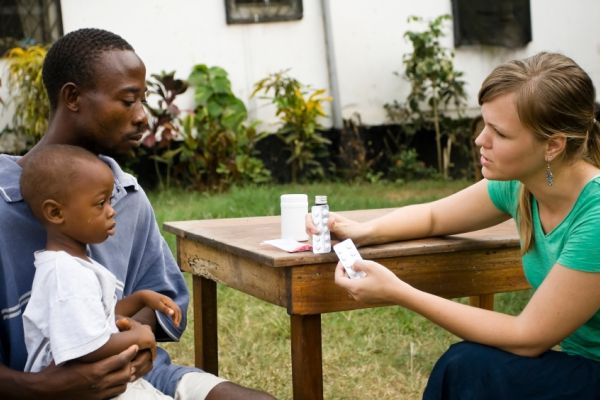The ethics of research related to healthcare in developing countries
Report
Published 24/04/2002

For research to be ethically acceptable, participants should be given the relevant information in a comprehensible manner, and must take part voluntarily. However, differences in social and cultural contexts in developing countries mean that some procedures may be ineffective or inappropriate. The way in which information on the potential risks and benefits of research is provided is particularly important.
Who should give consent?
Researchers are often faced with difficult choices when considering who should make decisions about taking part in research. For example, in some communities it is customary for male members of the family to make decisions on behalf of wives and children.
We conclude
For consent to be genuine, it must be freely given. We conclude that consent to participate in research must be obtained from each person individually. However, we also recommend that it may sometimes be appropriate to obtain agreement from the community or assent from a senior family member before approaching a prospective participant.
How should consent be obtained?
Participants should be provided with information that covers the nature and purpose of the research, the procedures involved, and the potential risks and benefits. However, long and complex consent forms are likely to confuse, rather than inform, people. Potential participants should be given the opportunity to ask questions about the proposed research.
We conclude
Information sheets and consent forms should be accurate, concise, clear, simple, specific to the proposed research and appropriate for the social and cultural context.
How should consent be recorded?
Problems may arise when recording consent with illiterate populations. In other situations, participants may be unwilling to sign consent forms because of concern that they are signing away rights. It is the substance of the process for obtaining consent which is important, rather than the procedures to record the consent itself.
We conclude
Researchers should obtain written consent where appropriate. We recommend that when written consent is not feasible, verbal consent is acceptable, provided that it is formally documented and witnessed. The process must be approved by a research ethics committee.
Are inducements acceptable?
Where healthcare facilities are lacking in developing countries, some people may agree to take part in research because they believe it is their only way to receive improved healthcare.
Researchers need to be aware that the offer of treatment during a trial might count as an inducement. In addition, other benefits such as financial payments, to compensate for time or travel costs, may act as incentives. An inducement may be considered inappropriate if it encourages someone to take greater risks than they would otherwise consider acceptable.
We conclude
Inducements to take part in research must be appropriate to the local context. We recommend they should be considered by the local research ethics committee.

Share